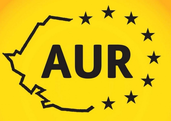Employers in Romania are not ready for pay transparency and have not started the process of implementation and adaptation to the new directive of the European Commission, which is to be implemented starting with the second half of 2026, according to a job recruitment platform.
Thus, 62% of the employers in the latest survey conducted by eJobs Romania said that they are not ready for the moment when the salary market will be made transparent in the sense of publishing the pay offered in the job advertisements, while 22% feel partially prepared, they have started to analyse the impact and plan ahead, and 16% are very prepared and already have a pay transparency policy that they apply when hiring.
"Although it is no longer a new issue for employers and everyone knows the directive and the fact that it does not take long for it to be implemented, we still see a percentage that fails to exceed 40% of the jobs that have the pay displayed in the job advertisement. Exceptions are blue collar jobs for candidates without higher education, where the pay argument is defining. For example, if on eJobs.ro about four out of ten jobs posted have the salary published, on iajob.ro, the platform for job seekers without higher education, the number increases to seven out of ten," according to Raluca Dumitra, Head of Marketing at eJobs.
When asked how the company they belong to relates to pay transparency when posting new available jobs, 34% answered that they publish the pay for most new positions, 10% do so only for entry level positions, while 56% do not display it at all. 41.7% admit that they fear that such a transparent approach could generate potential dissatisfaction among current employees about the differences between the pay they receive and those offered to candidates for vacancies. 21% believe that this information should remain confidential, and 14.6% believe that posting the pay will lead to a more difficult management of pay negotiations with new candidates. Other risks they see in the adoption of this directive are related to the high administrative costs related to implementation, but also to the fact that they will be disadvantaged in attracting candidates because they do not offer competitive wages.
"There are also employers who rather see benefits in implementing the salary market transparency, with the main one being an increase in trust in the relationship with employees and candidates. Other benefits mentioned were the reduction of the pay gap and the promotion of gender equity, as well as attracting talent in a shorter time. In fact, even our data shows that ads with the displayed pay receive up to four times more views and applications than the others," said Dumitra.
On the other hand, 30% say that they do not see benefits, but only risks to such an extent. Despite that, 66% of the survey participants say that the message that has the greatest resonance in communicating with potential employees is the one related to the salary package.
The survey was conducted in September, on a sample of 198 respondents - HR specialists, department managers, team leaders and entrepreneurs. The areas from which the most answers came were construction, manufacturing, administrative / logistics, sales, medicine, HR / psychology, IT, and banking.
Currently, there are 24,000 jobs available on eJobs.ro. Another 7,000 jobs are open on iajob.ro, the job platform for job seekers who want to get hired quickly, without going through the traditional steps of a recruitment process, such as the creation of a CV.
































Comentează